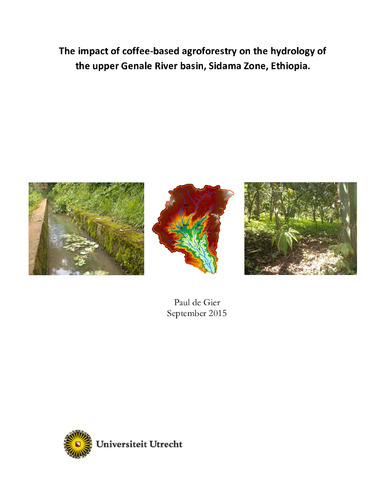The impact of coffee-based agroforestry on the hydrology of the upper Genale River basin, Sidama Zone, Ethiopia
Abstract
Research was done in the upper part of the Genale River basin in the Sidama Zone, Ethiopia. The research focussed on answering the question whether coffee-based agroforestry could ve an impact on the local hydrology. Discharge data, land use data and soil data was collected in the field and from literature and together put into a SWAT model to investigate the hydrological cycle of the basin. Several scenarios were created in which the amount of coffee in the area was altered. These scenarios were compared with each other to investigate the influence of coffee-based agroforestry on the hydrology. It appeared that altering the amount of coffee had a small influence on the hydrology, in particular on the discharge. When more coffee is present, the evapotranspiration increases, and both surface runoff and discharge decrease. After assessing the influence of coffee using the coffee scenarios, future scenarios were used to predict if there would be any noticeable changes in the future when land use changes. Land use changes are likely to affect the hydrology. The discharge could decrease with 47.500 cubic meters per day in a dry year, which is about 1% of the regular discharge. This could lead to a possible change in irrigation potential and in a possible decrease in drinking water resources.

